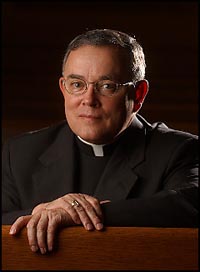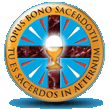Suing the Church

May 26, 2010
Charles J. Chaput, O.F.M. Cap.
First Things Magazine
In the organizational structure of the Catholic Church in America, the Province of Denver includes the dioceses of Pueblo and Colorado Springs in Colorado, the Diocese of Cheyenne in Wyoming, and the province’s metropolitan (or senior) see, the Archdiocese of Denver. That makes Denver’s bishop an archbishop. As that archbishop, I rarely see a year go by without at least two or three unhappy parishioners assuming I have the authority to “straighten out” their liturgists and principals and pastors or some other problem in their local parish—within the province but outside my own diocese.
They tend to get even more annoyed when they learn that I have neither the authority nor the foolishness to meddle in the life of a sister diocese. Nor will I intrude on the ministry of a brother bishop. The title archbishop does entail some rights and duties in the life of a province, but these are strictly limited.
In reality, each diocese is a separate, autonomous community of believers. Each bishop in a province is an equal. Each is a successor of the apostles. And each is the chief teaching and governing authority in his own local church. Of course, the bishop of Rome, who is also the pope, is uniquely different: He is first among brothers, and yet he also has real authority as pastor of the whole Church. But he is not a global CEO, and Catholic bishops are not—and never have been—his agents or employees.
It’s useful to remember this today as lawyers try ingeniously to draw the Vatican into America’s ongoing sex-abuse saga. In O’Bryan v. Holy See, currently being heard in the U.S. district court in Kentucky, plaintiffs’ attorneys are seeking to depose Vatican officials—including, potentially, the pope himself—to determine what they allegedly ignored or covered up about the handling of clergy sex-abuse cases by American bishops. The plaintiffs’ legal argument hinges on the premise that bishops are, in effect, Roman-controlled employees or officials.
That argument is not merely false in practice. It is also revolutionary in consequence. In effect, it would redefine the nature of the Church in a manner favorable to plaintiffs’ attorneys but alien to her actual structure and identity. To put it another way, plaintiffs’ attorneys want a federal court to tell the Church what she really is, whether she agrees or not, and then to penalize her for being what she isn’t.
Every bishop in the United States has a filial love for the Holy Father and a fraternal respect for his brother bishops. But these familylike words—filial, fraternal, brother—are not simply window dressing. They go to the heart of how the Catholic community understands and organizes itself—and, more important, to how the Church actually conducts herself, guided by her own theology and canon law.
The Church is much closer to a confederation of families than a modern corporation. And this has real, everyday results. In practice, the influence of the Holy See on the daily life of theArchdiocese of Denver is strong in matters of faith and morals. We’re deeply grateful for the leadership and wonderful teaching of the papacy. But in the operational decisions of our local Church, the Holy See’s influence is remote. In twenty-two years as a bishop, my problems have never included a controlling or intrusive Vatican.
We live in ironic times. Critics of the Catholic Church in the nineteenth century conjured up a monolithic Catholic Church, the better to frighten America’s Protestant masses. Today, when that Roman straw man is even less believable, they have revived the notion of the Catholic Church as a Vatican-controlled monolith, no matter how far that myth is from real Church life—but this time, the better to sue her.
Charles J. Chaput, O.F.M. Cap., is the archbishop of Denver.

